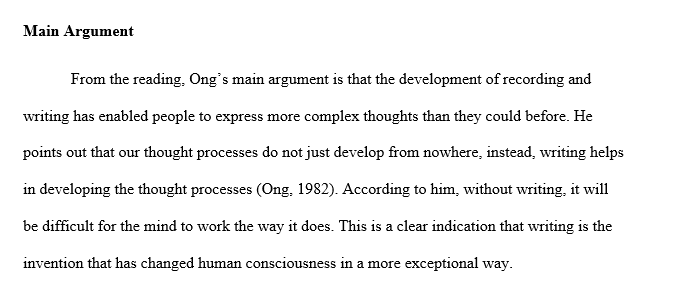Critical analysis
-Ong, W. J. (1982) Orality and Literacy: The Technologizing of the Word, London: Methuen, 78-115 (Chapter 4, ‘Writing Restructures Consciousness’). (Available on Moodle).
-Wolf, Maryanne. (2010) Proust and the Squid. The Story and Science of the Reading Brain, Cambridge, Icon Books. Chapter 3, “The Birth of the Alphabet and Socrates’ Protests” (pp. 51- 78). (Available on Moodle).
-McLuhan, M. (1962) The Gutenberg Galaxy: The Making of Typographic Man, London: Routledge and Kegan Paul, pp.18-31. (Available on Moodle).
-Derrida, J. (1998) Of Grammatology, trans. Gayatri Chakravorty Spivak, Baltimore: Johns Hopkins University Press, Chapter 1 “The End of the Book and the Beginning of Writing”, pp. 1-26. (Available on Moodle).
WHAT IS A CRITICAL READING?
The purpose of a critical analysis is to relate the chosen reading to your everyday experience. Ask yourself the following questions:
How can I relate this reading to my everyday practices?
Does it tell me something about myself, my everyday experiences and the present world?
What can I do with this theory? Is it useful? How can it be used? What can I apply it to?
In your critical analysis:
1) Choose a key reading that you think is relevant to your everyday experiences.
2) Identify the main argument of the reading (500 words).
3) Pick one example from your everyday experiences and explain how the reading helps you make sense of it. (500 words). Identify and explain the line of reasoning in the text.
List of References
Please include a List of References at the end of your critical analysis. You will need to reference only the key reading you have chosen.
